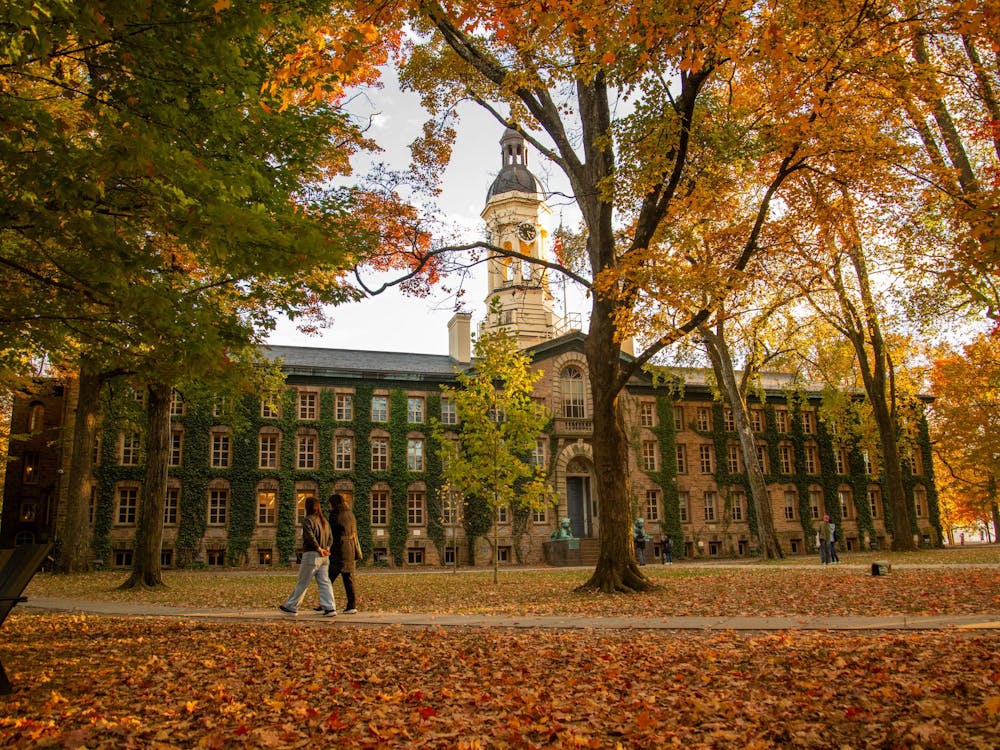Instead of completing their science and technology distribution requirement with beakers and scales, 14 freshmen are disassembling and overhauling a 50-year-old motorcycle in FRS 108: Art and Science of Motorcycle Design.
Taught by mechanical and aerospace engineering professor Michael Littman, students in the new freshman seminar go to the E-Quad’s machine shop once every week for the course’s lab component. Though they started out by tinkering with K’NEX pieces, the freshmen soon progressed to a 1962 Triumph Tiger Cub motorcycle. They started reassembling it this week.
“We are bringing in the current state of the art in engines right to the freshmen,” Littman said.
In the classroom component, students learn about form and function, troubleshooting and tools, scientific principles and design choices in the evolution of the motorcycle. Guest speakers also give lectures about various areas relating to the field. Topics covered include combustion, materials and fluid dynamics.
The motorcycle provides an ideal case study for learning about engineering systems, Littman explained. Students investigate how the design of each individual part works together in order to create one machine.
“To me, it is an engineering work that is functional through its efficiency in minimum parts to get maximum performance, and to do it in a way that has an elegant form,” Littman explained.
To complete their tasks in the style of real renovators, students found and purchased parts and tools online. In order to understand how this motorcycle’s design has changed over time, the class compared the bike to a 1958 Tiger Cub.
In planning the seminar, Littman teamed with Glenn Northey, the machine shop’s manager, with whom he has worked on various projects over the last seven years.

“I have a motorcycle license, but I’m a newbie,” Littman said. “Glenn, on the other hand, has been riding motorcycles from the time he was a teenager. He has the real expertise in motorcycles, but I know about engineering systems.”
The science necessary to take the course, however, is no more complicated than that of a high school chemistry course, Littman said. Everything covered in class is based on straightforward scientific principles.
“You can do some really serious calculations with lower-level science,” he explained. “You don’t have to have knowledge of differential equations to be able to understand the basic scientific principles of design.”
The “Art” included in the seminar’s title comes from a book on the reading list, “Zen and the Art of Motorcycle Maintenance,” though Littman noted that “the course is light on the art side and heavy on the engineering side.”

“I put ‘Art’ in the title because the act of design is in itself an art, the art of engineering,” Littman said. “A well-designed engine is elegant; a poorly designed engine is a clunker. So, in some sense, the art that I was bringing out was the elegance of a good design.”
Bobby Zhu '13, a student in the course, said that he has enjoyed the class thus far.
“Everything is easy to understand and, from the lecture to the lab, we actually see how all the physics and chemistry are integrated into engineering design,” Zhu said.
Yet, he explained, the lab component is not without frustration.
“We really get to have a hands-on experience,” he said. “I get to work on the motorcycle, taking it apart, and it’s really tough. The hard part is putting it back together in the right order. If it doesn’t work right we’d all be pretty frustrated.”
Zhu added that he is looking forward to the final result.
“At the very end, when we see all the parts come back together and when it actually starts running, that will be the best part of it,” he said. “We’re really looking forward to that.”
The 1962 Tiger Cub should be fully functional by reading period. Though it will be fit for the road, it will probably be used for the same seminar in the future so students can compare it to newer motorcycles. Next year’s students will work on a 1963 Tiger Cub, Littman said.
“The first thing that the advisor said to us is that college is one of the few times that you are free to do whatever you want, and this was exactly the class,” Zhu said.
“You don’t get to study about motorcycles and take them apart and put them back together in the future. I joked with my mom, ‘If I can’t find a job out of Princeton, I’ll probably go back and start a motorcycle maintenance shop.’ ”







